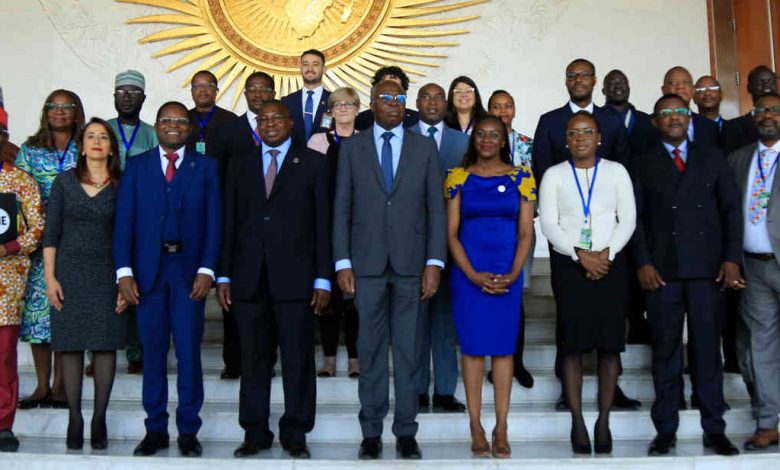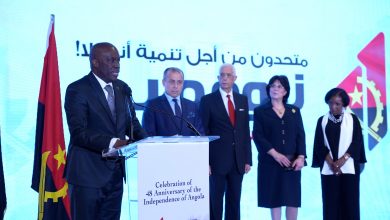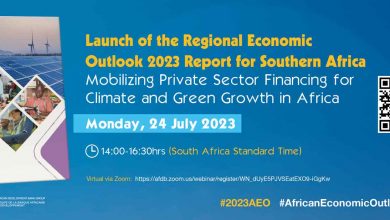Maintain a minimum growth rate of 7-10% of GDP to achieve inclusive growth and sustainable development in Africa, say experts at AU Summit | African Development Bank

Diplomat.Today
The African Development Bank
2023-02-19 00:00:00
——————————————-
Experts examining an ongoing study on Friday into key factors driving development in Africa stressed the need for the continent to maintain annual growth rates of at least 7-10 percent over the next 40 years if Agenda 2063 is to be met .
The session, organized by the African Union Commission and the African Development Bank, took place on the sidelines of the 36th African Union Summit in Addis Ababa. The study on Key actions to drive inclusive growth and sustainable development in Africawas commissioned by the Chair of the African Union Commission, Moussa Faki Mahamat, and the President of the African Development Bank, Dr. Akinwumi Adesina.
The study will conduct an in-depth analysis of Africa’s growth trajectory and identify key actions for Africa to double its growth rates from current levels over the next 40 years. Agenda 2063, prepared by the African Union, is Africa’s roadmap and master plan to transform the continent into the global powerhouse of the future.
Acting Chief Economist and Vice President of the African Development Bank, Prof. Kevin Urama, outlined the rationale for the study: “Africa’s current growth performance is insufficient to eradicate poverty and meet the Sustainable Development Goals (SDGs) and Agenda 2063 as contained in the African Development Bank’s ‘High 5’ priorities.
Albert Muchanga, AU’s Commissioner for Economic Development, Trade, Tourism, Industry and Minerals at the African Union, moderated the session, which lasted approximately 90 minutes.
In a message read on his behalf, President Hakainde Hichilema of Zambia said he had no doubts that Africa would overcome poverty and expected nothing less than fit-for-purpose recommendations. “What we can do collectively to grow the African economy can no longer be seen as utopian.”
Each speaker confirmed his conviction that sustainable development is within reach. They cited China as an example of an inclusive growth development strategy that had propelled the country from a developing country to a superpower within 40 years.
The study will look extensively at the controlled growth trajectory of African economies and find the reasons for the flattening.
“No African country has achieved consistent growth over decades. Why the inconsistencies, and what are the drivers of rise and fall?” Urama asked. “We need new approaches to new financial models to address them. Redistribution of resources is inevitable,” said Urama.
Sharing examples from Angola, the country’s finance minister Vera Daves de Sousa said progress means commitment. “In Angola, the government is fully committed to removing obstacles – to improve the business climate, starting with the political climate.”
Other requirements, according to De Sousa, were tackling excessive bureaucracy and promoting human capital development as an important pillar of the country’s development plan.
Professor and economist Jeffrey Sachs of Columbia University noted that increasing and sustaining investment from its current level of 20% of GDP to 40% would require “thorough quantitative exercise and a development strategy promoted by strategists.” This is the challenge of Africa,” he stressed, adding that infrastructure and human capital development would be critical.
Hanan Morsy, deputy executive secretary and chief economist at the United Nations Economic Commission for Africa, said Africa needs macroeconomic stability. “The continent needs to scale up the manufacturing value chain, not just export raw materials,” she noted.
Other speakers mentioned additional hurdles facing the continent, the most significant being the cost of capital to deliver the infrastructure spending needed for growth, the bulging youth population and the need to accelerate technological innovation and skills.
Following further consultation with stakeholders, the study will provide recommendations for a development blueprint to help transform African economies and eradicate poverty. It is expected to be completed in December 2023.
Here are a few main goals of the planned study:
- Identification of the drivers and barriers to inclusive growth, sustainable development and structural transformation in Africa, in general, and country-specific classifications based on specific characteristics such as income levels
- Formulate remedies to identify binding restrictions
- Examine the synergies and complementarities of existing policies and initiatives for all African countries to implement for inclusive growth and sustainable development
- Makes recommendations that will serve as a continental strategy for inclusive growth and sustainable development in Africa
- Proposes key actions required on a national, regional and continental scale by relevant stakeholders to support Africa’s transition to inclusive and sustainable development pathways to achieve the SDGs, Agenda 2063 and the Hi-5s on the continent.
——————————————-



